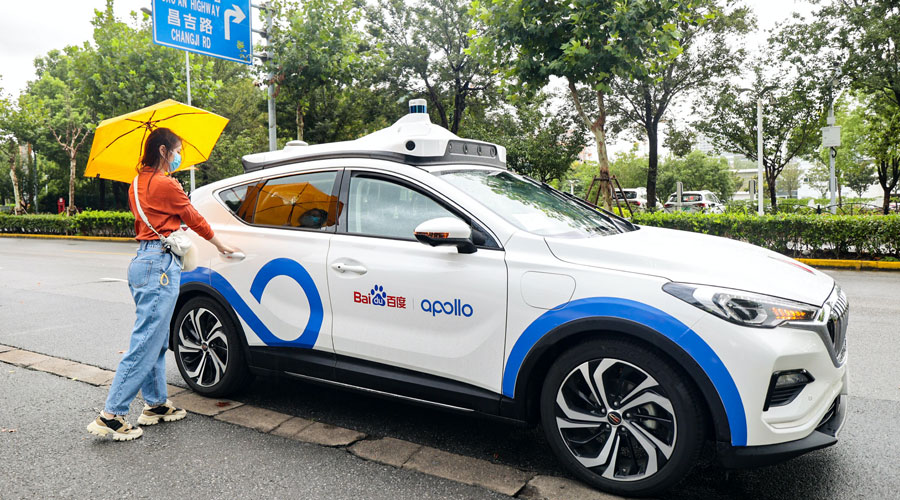Baidu has now opened its RoboTaxi Service using the Apollo Ride-sharing app in Shanghai. It will be the fifth city where Passengers can make trials of the Robotaxi Platform.
The Shanghai Robotaxi Operation will cover 150 stations in different phases throughout the city to facilitate access to residential areas, commercial areas, offices, and public transportation. The service would continuously operate from 9:30 a.m. to 11:00 p.m daily.
Less than a month after unveiling its first Robocar, this announcement reflects another milestone for Baidu Apollo: the extension of Apollo Go to Beijing’s Tongzhou District, where residents and visitors will be able to travel in autonomous vehicles. The first batch of routes in Tongzhou will connect 22 stations more than 31 miles, supporting more than 100 trips per day.
According to a recent IHS Markit report, Business Models such as Robotaxi services would influence the market potential of Autonomous Vehicles. Also, former Google project, Waymo opened its Robotaxi service for public experience in San Francisco. It seems the market value of RoboTaxi services would reach more than $201 billion, a value of more than 60% of China’s future mobility sharing market by 2030.
China’s autonomous driving industry has recently entered a new stage of development, marked by large-scale application trials. According to Wei Dong, Vice President and Chief Safety Operation officer of Baidu’s Intelligent Driving Group, this large-scale implementation requires three steps: regionalization, commercialization, and verification via unmanned on-road operation.
Apollo L4 autonomous driving had obtained 8.7 million test miles at the end of August 2021. Following the Shanghai launch, Baidu aims to extend Apollo Go services to 25 new cities over the next three years, Enabling autonomous driving a reality for 3 million Chinese people. Baidu is the sole provider of this service in the three first-tier Chinese cities of Beijing, Guangzhou, and Shanghai.

